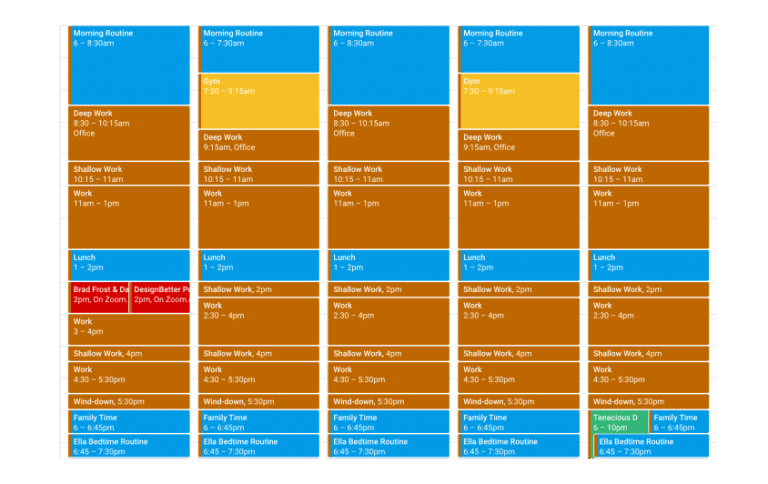Optimize your study time for Flow
When you have a crammed schedule, it's tempting to think you can multitask. But studies find that focusing on a single task can be 500% more productive.
If you find it hard to focus on just one thing:
- Remove distractions, including your phone.
- Start small and set a timer.
- Take a break between each session.
980
3.23K reads
The idea is part of this collection:
Learn more about timemanagement with this collection
How to build trust and respect with team members
How to communicate effectively
How to motivate and inspire others
Related collections
Similar ideas to Optimize your study time for Flow
Hyper Focus Ritual
To hyperfocus,
- Choose a productive or meaningful object of attention;
- Eliminate as many external and internal distractions as you can;
- Set a timer
- Focus on that chosen object of attention;
- Continually draw your focus back to that one object of attention....
Time blocking and focus
By scheduling every minute of your day you not only guard against distraction but also multiply your focus.
Also, focusing on one task at a time can make you up to 80% more productive than splitting your attention across multiple tasks.
3. PLAN YOUR TIME.
It helps to have some plans in motion so you can make the most of your study time.
- Set alarms – Set alarms to remind you about your study plans. A regular reminder keeps your plans on track.
- Use a wall planner – Stick a calendar or wall planne...
Read & Learn
20x Faster
without
deepstash
with
deepstash
with
deepstash
Personalized microlearning
—
100+ Learning Journeys
—
Access to 200,000+ ideas
—
Access to the mobile app
—
Unlimited idea saving
—
—
Unlimited history
—
—
Unlimited listening to ideas
—
—
Downloading & offline access
—
—
Supercharge your mind with one idea per day
Enter your email and spend 1 minute every day to learn something new.
I agree to receive email updates


